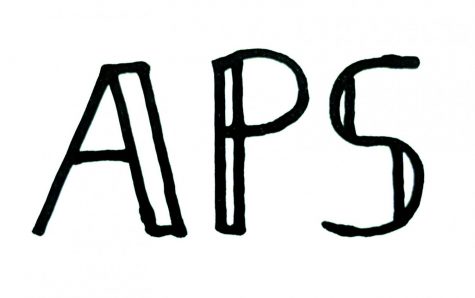Schwartz: Be vigilant of corporate bias in journalism
April 6, 2018
You may have seen it on Twitter over the weekend: A video compiled by the sports publication Deadspin showing almost 200 local news stations reciting a single script about the dangers of fake news. The stations are owned by Sinclair Broadcast Group, a company that has come under fire for biased conservative and pro-Trump coverage.
The Deadspin supercut is utterly chilling, at some points even playing multiple broadcasts at the same time to depict a dystopian choir of anchors reciting an identical script. They warn of despicable false stories on social media being picked up by biased media outlets who deceive the public. It’s a harmless message — noble, even — but its origins are insidious.
Sinclair is perpetuating President Donald Trump’s war on the media where it hurts — at the local level. Some studies show Americans trust local news stations almost twice as much as national ones. Local anchors and reporters can have significant relationships with community leaders and residents. What they say matters, and Sinclair knows that audiences are more likely to believe them.
This can turn audiences against national news media by associating it with fake news. It insinuates that the only way to get factual, unbiased information is through avoiding social media and non-local networks. It sows seeds of distrust in the minds of local media consumers.
But more importantly, Sinclair’s message is a gross overstep and sets a dangerous precedent for corporations to control media outlets.
It’s a sad reality that journalists often experience editorial pressure from parent companies, corporate donors and even advertisers from across the political spectrum. But Sinclair’s message crosses a line by feeding the same content to hundreds of stations and forcing them to read it themselves. It closely resembles fascist state television.
It doesn’t matter what the message is: Editorial content should never be forced onto journalists by corporations, governments or anyone else who is not involved in the editorial process. A publication’s autonomy is its greatest asset; it’s where it derives credibility. A journalist’s integrity is compromised when they are beholden to anything other than the public.
Take The Daily, for example. We’re completely independent from Northwestern’s administration and its alumni donations. Our only responsibility is to this student body and the surrounding community of Evanston. No one outside our staff feeds us content to publish, and we are committed to keeping it that way.
The Deadspin video contains cuts repeating the same line from the script: “This is extremely dangerous to our democracy.” Indeed, this practice is extremely dangerous to our democracy; corporate ownership of news media is extremely dangerous to our democracy. Democracy thrives on a free press that is unencumbered by corporate or government influence.
It is, of course, not the fault of the individual anchors and reporters at these Sinclair stations. They had no choice but to read the script if they wanted to avoid losing their jobs. But it is our responsibility as an informed audience to be aware of corporate biases in the newsrooms we trust. They will almost always exist, but we should be vigilant of instances where they cross an editorial line. These biases have much more significant implications than the fake news Sinclair wants us to watch out for.
Alex Schwartz is a Medill sophomore. He can be contacted at [email protected]. If you would like to respond publicly to this op-ed, send a Letter to the Editor to [email protected]. The views expressed in this piece do not necessarily reflect the views of all staff members of The Daily Northwestern.

